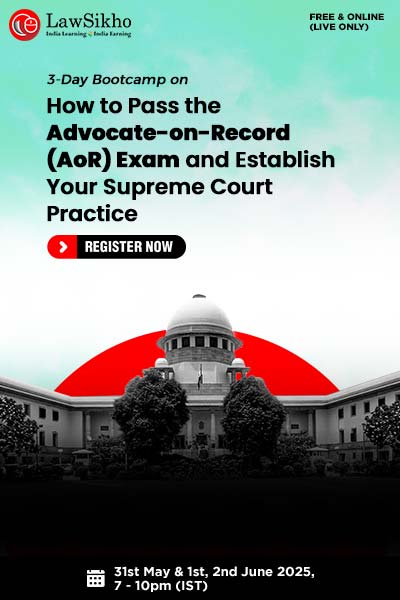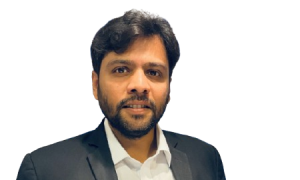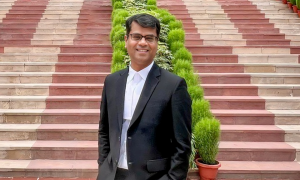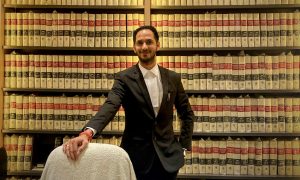This interview has been published by Anshi Mudgal and The SuperLawyer Team
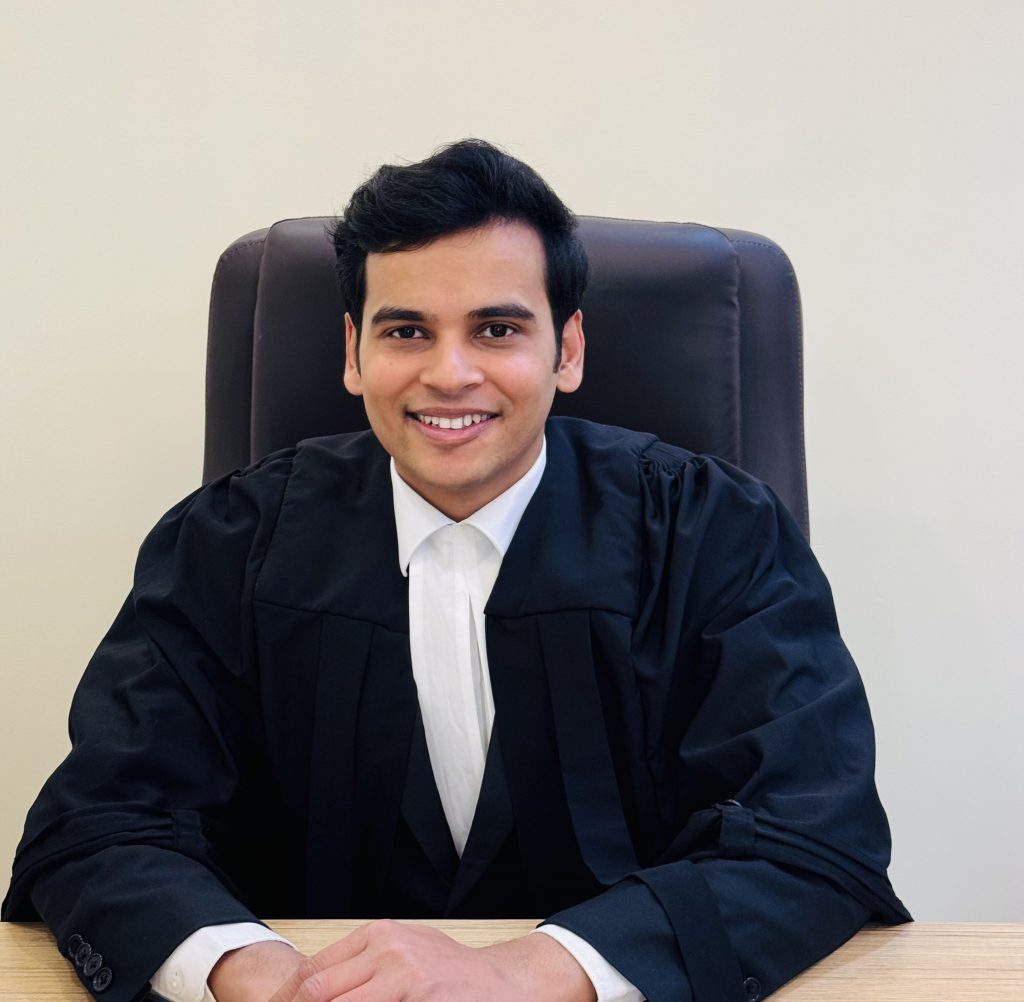
Your academic trajectory from B.Com (Hons.) to Law, Company Secretaryship, and an M.Com reflects a strong interdisciplinary foundation. What inspired you to pursue both law and the CS qualification simultaneously, and in what ways has this combination given you an edge in advising clients on matters of corporate governance, regulatory compliance, and financial structuring?
From the very beginning, I was drawn to the intersection of law, commerce, and corporate governance. Pursuing Company Secretaryship alongside my legal studies was a conscious decision as it allowed me to build a foundation that wasn’t just legally sound, but also rooted in financial and regulatory nuances. This interdisciplinary approach has been extremely helpful, especially in matters involving corporate litigation, insolvency, and compliance. Clients often benefit when legal advice is well-integrated with an understanding of statutory filings, boardroom dynamics, and financial frameworks. I’ve also noticed that having both an LLB and CS qualification adds to my credibility in the eyes of clients. They feel more assured that their legal matters are being handled with a broader understanding of business and compliance.
During your time with Advocate-on-Record Abhinav Shrivastava, you worked on several significant matters, including cases involving medical negligence, public infrastructure, and high-stakes regulatory disputes. Which of these experiences had the greatest influence on your legal mindset or courtroom confidence, and why?
Each case taught me something unique, but one that stands out was the medical negligence matter which ultimately led the Delhi High Court to direct the Medical Council of India to frame sentencing guidelines against doctors. The case was layered with complex medical facts and touched deeply on issues of public interest and human emotion. Working under the guidance of Mr. Abhinav Shrivastava in this matter was instrumental. He gave me the opportunity to argue before the Supreme Court in the very first year of practise. His clarity of thought, meticulous approach to drafting, and strategic vision shaped how I began to understand litigation at a deeper level. Observing how he navigated the matter and collaborated with senior counsel not only sharpened my legal thinking but also instilled in me the confidence and discipline required in court, something no textbook alone can provide.
You also contributed to the due diligence process for a major international brand like Burger King. How did this corporate compliance role differ from your litigation work, and what insights did you gain into global business operations and cross-border regulatory frameworks through that engagement?
That engagement was eye-opening. While litigation often focuses on resolving disputes, due diligence work is more about anticipating and mitigating future risks. Working at Burger King allowed me to see the meticulous backend of corporate transactions: compliance checks, property evaluations, and regulatory assessments. It gave me a global perspective on how multinationals approach legal risk and localization, which I now carry into advising Indian startups.
Since embarking on your independent practice and founding Maximus Legal , you’ve handled a wide variety of matters before bodies like the NGT, NCLT, and the Supreme Court. What have been the most significant challenges and turning points during this journey? What initially motivated you to take the leap and establish your own firm?
Starting my own firm was less about ambition and more about purpose. I wanted to build a practice rooted in accessibility, integrity, and multidimensional legal service. The biggest challenge was transitioning from being an associate to becoming a first point of contact for clients. The turning point came when I successfully argued for a client in a habeas corpus matter involving child custody, a deeply sensitive issue that reaffirmed my decision to take this path. Founding Maximus Legal has allowed me to offer end-to-end solutions across practice areas, with a team that shares this commitment.
Your experience spans a wide legal spectrum from consumer protection and matrimonial cases to environmental litigation and complex insolvency proceedings. Could you share one particularly challenging case that tested your legal acumen or professional resilience?
One of the most challenging cases was representing a group of industries before the NGT, Principal Bench regarding the air quality of my hometown Mandi Gobindgarh, Punjab. Balancing environmental concerns with the economic realities of industrial stakeholders required not just legal knowledge, but nuanced negotiation and strategy. The matter demanded extensive groundwork, collaboration with technical experts, and the ability to argue for sustainable solutions. It was a test of endurance, but also of finding balance in public interest litigation.
Having facilitated over 50 trademark and 25 copyright registrations including international filings you’ve built a solid IP practice. In your experience, what are the most common hurdles startups and individuals face during the IP registration process, and how can these be effectively addressed from a legal strategy perspective?
Many startups underestimate the value of early IP protection. The most common hurdles include inadequate documentation, lack of awareness about global classifications, and conflicts with existing trademarks. I believe the solution lies in proactive education. At Maximus Legal, we guide clients from day one, not just in registration, but in building an enforceable brand identity. International filings also require understanding treaty frameworks like the Madrid Protocol, which many startups overlook. Strategic foresight, coupled with clear documentation, can save significant time and costs down the line.
Now leading your litigation practice and having cleared the Advocate-on-Record exam, what guidance would you offer to young lawyers hoping to build a career path similar to
yours? What specific skills, values, or tools have proven vital to your growth and long-term success?
The most valuable skill is consistency, whether in drafting, client communication, or court appearances. Young lawyers often look for shortcuts, but the law rewards diligence and depth. I would also stress the importance of mentorship, both formal and informal. Working under experienced professionals taught me discipline and nuance. Tools like legal research databases, structured daily schedules, and clear documentation habits have helped me immensely. Above all, maintaining integrity, doing the right thing even when no one is watching, has been a guiding value.
Could you walk us through your experience of preparing for and clearing the Advocate on-Record examination? How has achieving AOR status influenced your professional standing and the scope of your legal practice?
Preparing for the AOR exam was rigorous. It required not just legal knowledge but also the ability to think practically under pressure. I had to revisit core procedural law, refine my drafting, and understand the unique ethos of Supreme Court practice. Clearing the exam has been a milestone. It has enhanced client trust and opened doors to file directly before the apex court. Interestingly, I’ve noticed that people look at you a little differently when they hear you’re an Advocate-on-Record, it carries a sense of credibility and seriousness in the legal community. More than anything, it’s a personal reminder that persistence and preparation truly pay off.
High-stakes litigation is often intense and time-consuming. How do you maintain balance between the demands of your profession and your personal life? Has your approach to well being, stress management, or time allocation evolved throughout your career?
Yes, it has evolved a lot. In the early days, I was constantly on edge, running from court to office and barely taking time off. Over time, I realized that burnout doesn’t serve anyone. I now prioritize structured schedules, take short breaks, and occasionally unplug completely to reset. Being in court almost every day is demanding, but creating boundaries and nurturing personal interests, like travel or spending time with family, keeps me grounded.
Get in touch with Rahul Gupta –


